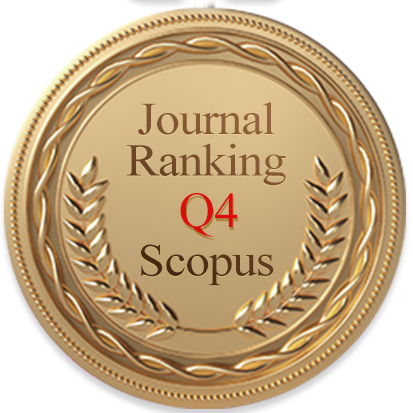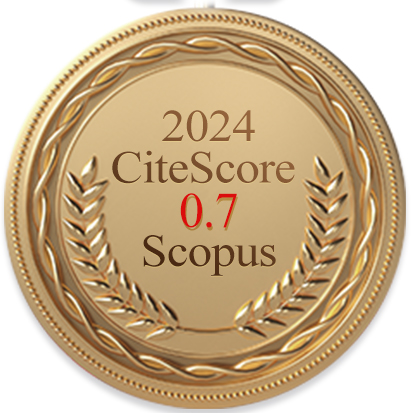The roles of stakeholders in the development of sustainable organic rice farming in Yogyakarta, Indonesia, were investigated, along with the patterns of collaboration among them. The study was conducted in the Special Region of Yogyakarta through purposive sampling to identify key informants. A qualitative methodology was employed, utilizing data collection through structured observations and in-depth interviews. The data were analyzed using an interactive model combined with thematic analysis, involving iterative stages of data gathering, reduction, presentation, and conclusion drawing. Stakeholder roles identified included those in education and socialization, technical mentoring, organic farming training, marketing facilitation, organic fertilizer production, organic rice production, policy formulation, scientific research contributions, and the establishment of association institutions. Collaborative linkages were identified among various actors, including academic institutions, business units, farmer groups, government bodies, and media organizations. Collaborative linkages were observed between academic institutions and business units, farmer groups, government agencies, and media organizations; business units and academic institutions; farmer groups and academic, business, governmental, and media stakeholders; government agencies and academic, business, farmer, and media sectors; and media organizations with academic, business, governmental, and farming communities. These findings underscore the complexity and significance of multi-stakeholder cooperation in advancing sustainable organic agriculture. Strengthening these collaborations is considered essential for the long-term success and resilience of organic farming initiatives in the region.
Modern high-input, intensive agricultural systems predominantly emphasize productivity and profitability at the expense of ecological balance. The Green Revolution, though instrumental in enhancing food security, relied heavily on mechanization, intensive cultivation, and high-yielding varieties, often compromising long-term sustainability. These practices have accelerated land use change and deforestation, leading to a substantial decline in soil organic matter (SOM), a reduction in terrestrial carbon sinks, and a rise in atmospheric carbon dioxide (CO₂) emissions. Under the increasing pressures of climate change—manifested in the form of drought, flooding, and pest outbreaks—the vulnerability of conventional farming systems has been exacerbated. In response to these challenges, regenerative organic agriculture (ROA) has been recognized as a holistic framework capable of restoring ecosystem functions, enhancing soil health, and supporting sustainable food production. This review synthesizes current research on ROA, with particular emphasis on practices that contribute to soil building and ecological regeneration. A meta-analysis of cover cropping practices across diverse soil types has demonstrated the potential to sequester soil organic carbon (SOC) between 0.32 and 16.70 Mg·ha⁻¹·yr⁻¹. Globally, an estimated SOC sequestration of 0.03 Pg·C·yr⁻¹ via cover crops could offset approximately 8% of anthropogenic greenhouse gas emissions. The physical, chemical, and biological improvements to soil properties facilitated by ROA have been systematically examined. Traditional Vedic agricultural practices in India have also been revisited for their ecological relevance and compatibility with regenerative principles. Integrated farming systems combining leguminous crops, agroforestry, horticulture, pasture, and animal husbandry have been reviewed for their synergistic effects on biodiversity enhancement, nutrient cycling, and climate mitigation. Additionally, the transition to renewable energy sources, reliance on self-saved seeds, and minimization of external inputs have been underscored as key strategies for achieving farm-level self-sufficiency and ecological sustainability. This review synthesizes scientific findings and traditional knowledge to highlight ROA as a holistic solution for restoring soil function, conserving natural resources, and advancing sustainable agricultural development.
Accurate rainfall forecasting remains critical for climate-sensitive agricultural planning, particularly in monsoon-driven regions where rice production is highly vulnerable to hydrometeorological variability. In this study, rainfall in Central Lombok Regency was forecasted using an enhanced version of the Facebook Prophet model incorporating a multiplicative seasonal component. Univariate monthly rainfall data (measured in millimeters) from January 1991 to July 2024 were utilized to train and evaluate the model. A configuration yielding optimal performance produced a Mean Absolute Percentage Error (MAPE) of 18.08% on the testing set, with 80.19% of the forecasted values exhibiting an Absolute Percentage Error (APE) below 20%, indicating a high level of predictive reliability. Forecasting was conducted over a short-term horizon of nine 10-day periods (approximately three months). Analysis of the forecast outputs identified the transition period from the dry to the rainy season—early August to late October—as the most favorable window for initiating rice planting. By aligning planting schedules with anticipated rainfall patterns, the likelihood of crop failure can be mitigated, thereby enhancing productivity and supporting local food security. The findings underscore the practical utility of interpretable time series models in developing data-driven agricultural calendars and advancing climate-resilient farming practices. This approach is particularly relevant for tropical monsoon regions facing increasingly erratic rainfall due to climate change. Furthermore, the demonstrated integration of seasonality effects within the Prophet framework contributes methodologically to the broader field of agro-meteorological forecasting.
The environmental and health-related challenges associated with intensive and conventional farming practices have underscored the urgency of transitioning towards more sustainable agricultural systems, such as organic farming. Degradation of soil quality, nutrient depletion, biodiversity loss, chemical exposure, and erosion have been widely attributed to prolonged conventional agricultural methods. The adoption of organic farming practices is therefore considered pivotal in addressing these ecological and public health concerns. However, the effectiveness of this transition is largely contingent on farmers’ willingness to adopt and sustain organic cultivation methods. In this context, A thorough examination of peer-reviewed literature was conducted to examine the behavioral drivers and systemic barriers influencing decisions by farmers to adopt organic farming. Special attention was given to the level knowledge and perception regarding organic practices, as well as theoretical models of technology adoption in agricultural contexts by the farmers. The findings indicate that perceived health benefits, environmental sustainability, and long-term economic viability are primary motivators of adoption. Conversely, constraints such as reduced yields, labor intensiveness, and certification complexity were identified as significant deterrents. Furthermore, a lack of awareness and limited technical knowledge regarding organic methods were shown to hinder adoption of organic farming practices. These insights highlight the need for coordinated interventions by policymakers, agricultural agencies, and industry stakeholders to facilitate the adoption process. Emphasis is recommended on expanding awareness campaigns concerning the environmental and health benefits of organic farming, enhancing access to training programmes, simplifying certification procedures, and reinforcing institutional support through well-structured extension services. Greater alignment between farmers’ perceived risks and the long-term benefits of organic agriculture is essential to achieving widespread and sustainable adoption.
Accurate forecasting of coffee crop yield is essential for enhancing agricultural decision-making, ensuring food security, and mitigating environmental risks. India cultivates both Arabica and Robusta across more than one hundred registered varieties. In this study, yield forecasts were developed for three representative varieties—C×R, Sln3, and Sln5B—using agro-ecological data collected from 2015 to 2022 at the Central Coffee Research Institute (CCRI), Coffee Research Station, Balehonnur, Karnataka, India. A stochastic machine learning framework was employed to identify and evaluate the most influential agro-ecological predictors through a multivariate feature selection approach coupled with correlation matrix analysis. Optimal predictors were organized into three distinct parameter groups, which were then used as inputs to four regression models: Extra Trees (ET), Gradient Boosting (GB), Random Forest (RF), and Decision Tree (DT). Independent testing revealed that the ET model consistently provided the highest accuracy. For C×R, yield was most accurately predicted using Group-1 parameters, such as coffee leaf rust (CLR), minimum temperature (Tmin), maximum temperature (Tmax), relative humidity (Rh), rainfall (Rf), organic carbon (OC), phosphorus (P), potassium (K), pH, plant spacing (Sp), and plant age (Ag), achieving a coefficient of determination (R²) of 0.98 with a Root Mean Square Error (RMSE) of 8.61 kg ha⁻¹. For Sln3, Group-3 parameters, such as CLR, Tmin, Tmax, Rh, Rf, OC, P, K, pH, Ag, Sp, minimum sunshine hours (SSmin), maximum sunshine hours (SSmax), vapor (Vp), and dew point (Dp), produced an R² of 0.98 with an RMSE of 8.27 kg ha⁻¹, while for Sln5B, Group-3 parameters yielded an R² of 0.97 with an RMSE of 7.79 kg ha⁻¹. These results demonstrate the superiority of the ET algorithm compared with GB, RF, and DT models, which exhibited comparatively lower predictive accuracy. Simulation outcomes further revealed that age, rainfall, and the incidence of CLR were among the most decisive agro-ecological determinants of yield. These findings underscore the potential of stochastic machine learning models, particularly the ET model, for enhancing yield prediction and identifying agro-ecological drivers of coffee productivity.






























